Two Welsh volunteers kick-start Rwandan rugby revolution
- Published
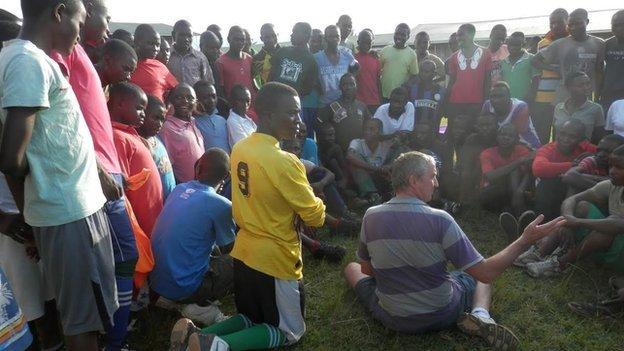
Glyn Watkins takes his first training session at TTC Mururu
When volunteer Glyn Watkins was asked to hold a rugby training session in a school in western Rwanda, he was not expecting to be greeted by 200 pupils.
"Help," was the message he mouthed to his wife, Mary, as he stood holding a single ball.
Two years later Glyn and Mary are back in Wales and can only watch through a computer screen as a handful of those pupils take to the field for the final of the Rwandan National League.
What began as a trial training session has developed into a way of life for many young people growing up in a country still tainted by the 1994 genocide.
Mary and Glyn Watkins were volunteering as teachers at TTC Mururu school in Rwanda in early 2014 when the principal of the college invited them to dinner.
Archive: Bill McLaren fund backs African rugby scheme
"I know the Welsh are not very good at football, but you're good at rugby," was the candid conversation starter that led to the school's first training session. How quickly things can change in sport.
Glyn had never previously coached rugby at any level, but his befitting birthplace granted him all the credibility he needed.
The school's single ball would not suffice so the couple travelled six hours through the Nyungwe rainforest to seek assistance from Friends of Rwandan Rugby, a small charity started by Emma Rees - a former student and rugby player of Aberystwyth University - which promotes the sport in Rwanda.
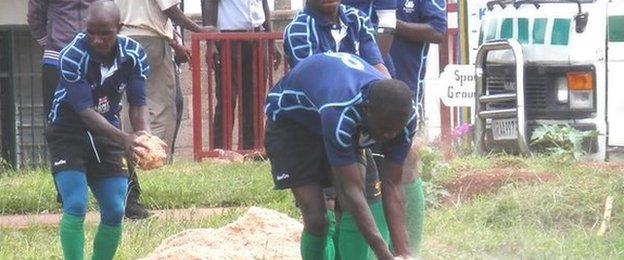
Players mark the pitch with sawdust before kick-off
They returned with three balls and the commitment of a few rugby development officers who would soon visit the school to coach the players.
This led to Mururu's participation in its first inter-schools national competition in which they finished fourth.
Word spread quickly and soon Mary found herself at the heart of her first international friendly.
"We were right on the Congo border and they heard about the training Glyn was doing, the next thing we knew we had a load of Congolese turn up," Mary said.
"I think that was the first Congo versus Rwanda international. The only problem was that the border closes at 6pm and it was about a 20 minute run for them to get back. So at half-past-five they would all disappear."
Border control wasn't the only obstacle to overcome. The pupils were also all too poor to afford any proper kit.
"In fairness to these lads, they don't have any money, they had one T-shirt for PE lessons and they complained they were getting ripped. So Caldicot RFC offered us some kit. Caerleon and Bedlinog RFC also helped out."
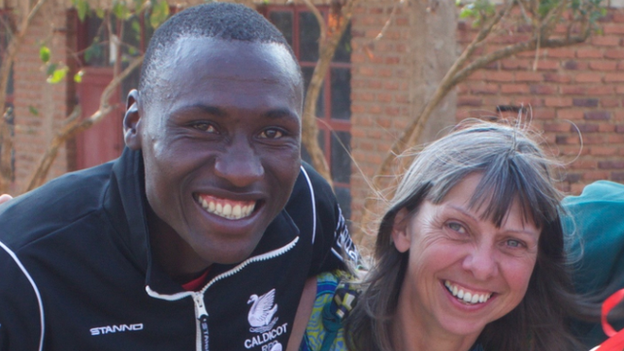
Donatien Ufitimfura, who founded Rusisi Resistance rugby club, and Mary Watkins
The team at least looked the part even if the pitch did not meet usual standards. Initially the markings were fictional which became the source of much dissent among opposing teams when tries were awarded.
"One game was delayed because none of the markings were set out and we had to wait for a guy to arrive on a bike that was loaded with sawdust - all the boys dived in and marked out the lines.
They play on a football pitch in which they strap massive bamboo poles to the posts to make rugby posts. I've also seen games played where the referee's flag is a leafy twig." Mary added.
Star player
By the end of 2015 many of the students had graduated but the team's captain Donatien Ufitimfura could not entertain the idea of life without rugby.
"I was wondering how am I going to spend two months of the holiday without playing the game so I came up with the idea of creating a team," he said.
"I started coaching newcomers from my district Rusizi and worked hard to increase the number of people interested in the sport."
From here Rusizi Resilience was born.
March, 2015: Despite not having any rugby pitches, Rwanda have been able to send a full rugby team to compete in Hong Kong as Laura Westbrook reports
The team became the eighth member of the country's national league which led to its official recognition by World Rugby. The only problem?
They had only ever played sevens in school and their first 15-a-side match was a competitive game in the national league. However, they won that match 36-6 against Muhanga RFC.
The team went on to win every match of their opening season until the league's final against Thousand Hills RFC on Saturday which they lost 45-0.
Mary arranged for the team to play in Oakdale RFC kit and is proud of their achievement.
"The team they were playing on Saturday is made up almost exclusively of international players. What Donatien has done is incredible," she said.
"He stood out from the very first training session for us. He is a very intelligent young man and he does an awful lot of research."
Donatien was invited to train with the national team, but fell just short of making the final squad.
He has turned down the opportunity to attend university to take up a post as a rugby development officer with 'Friends of Rwandan Rugby.'
He has already set up tag rugby teams in eight local primary schools.
Past grievances
For a country with such a turbulent history as Rwanda, Mary was quick to discover that rugby provided the pupils with a refuge, free from any painful historical references.
"Rugby is a post-genocide sport. When you were out there you realised that everyone was affected," Mary said.
"There were a lot of people that were killed in football stadiums. In village football sides you'd maybe play opposition that maybe killed your family.
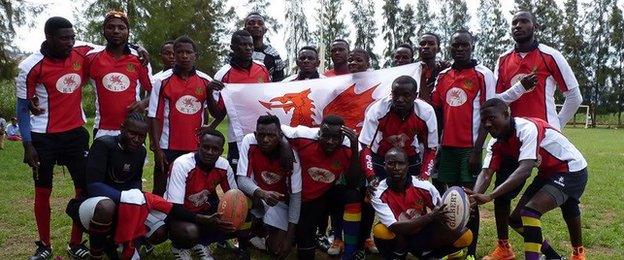
Rusizi Resilience on the day of the final in Oakdale RFC kit
"All the sports can be tainted but there are no bad memories associated with rugby."
Donatien admits the sport has become much more than a pastime.
"Rugby has eased the wound of genocide especially for the youth. Rugby has contributed for developing the sociability of Rwandans," he said.
"I could not envisage life without it. Only war, disaster or other conditions out of my control could stop me from playing now.
"Nobody can forget it all because what happened was so bad, but rugby can help me forget all the bad things I have seen.
"When I play rugby I can feel nothing in my heart but enjoyment."
- Published10 October 2016
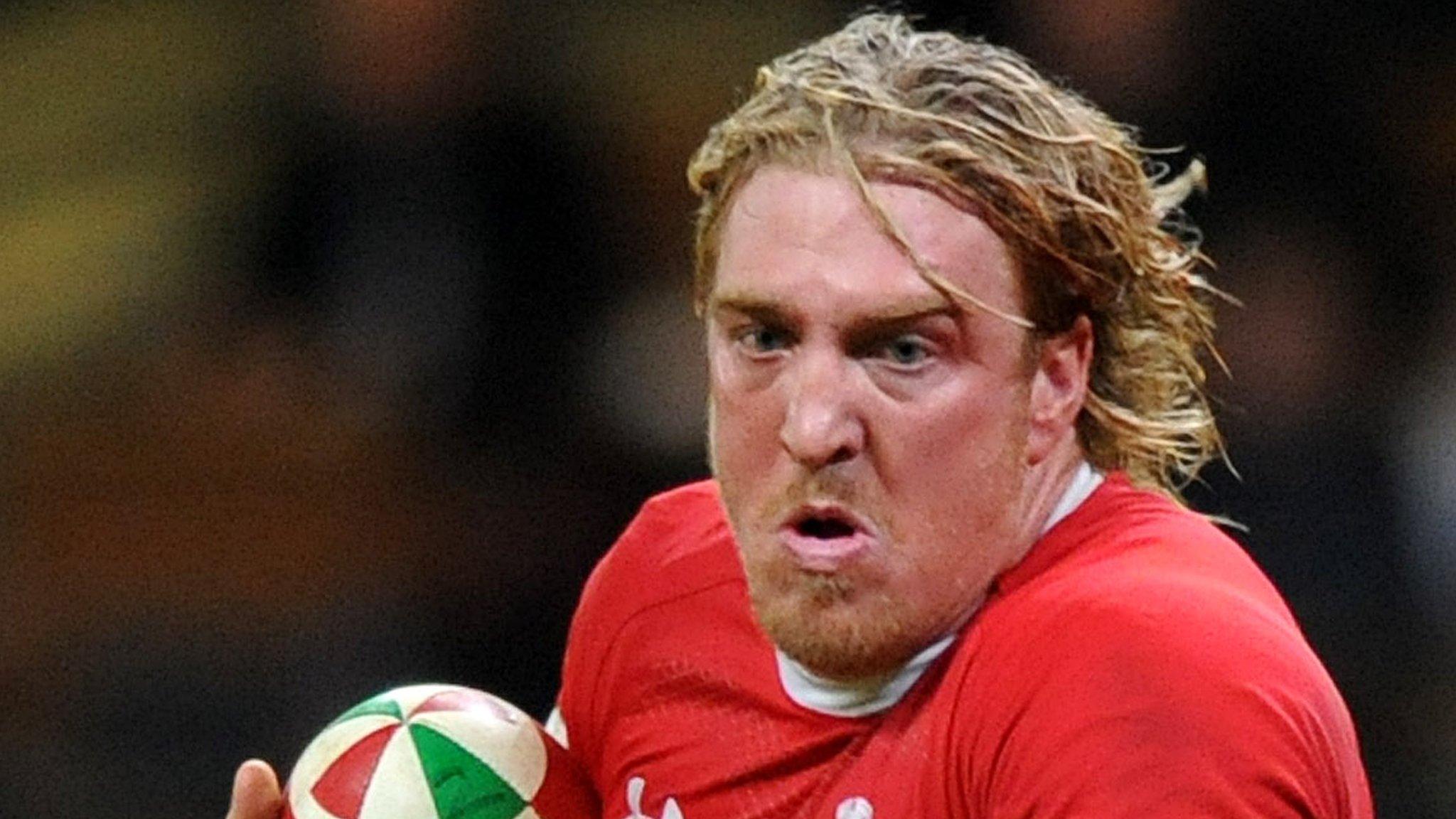
- Published10 October 2016
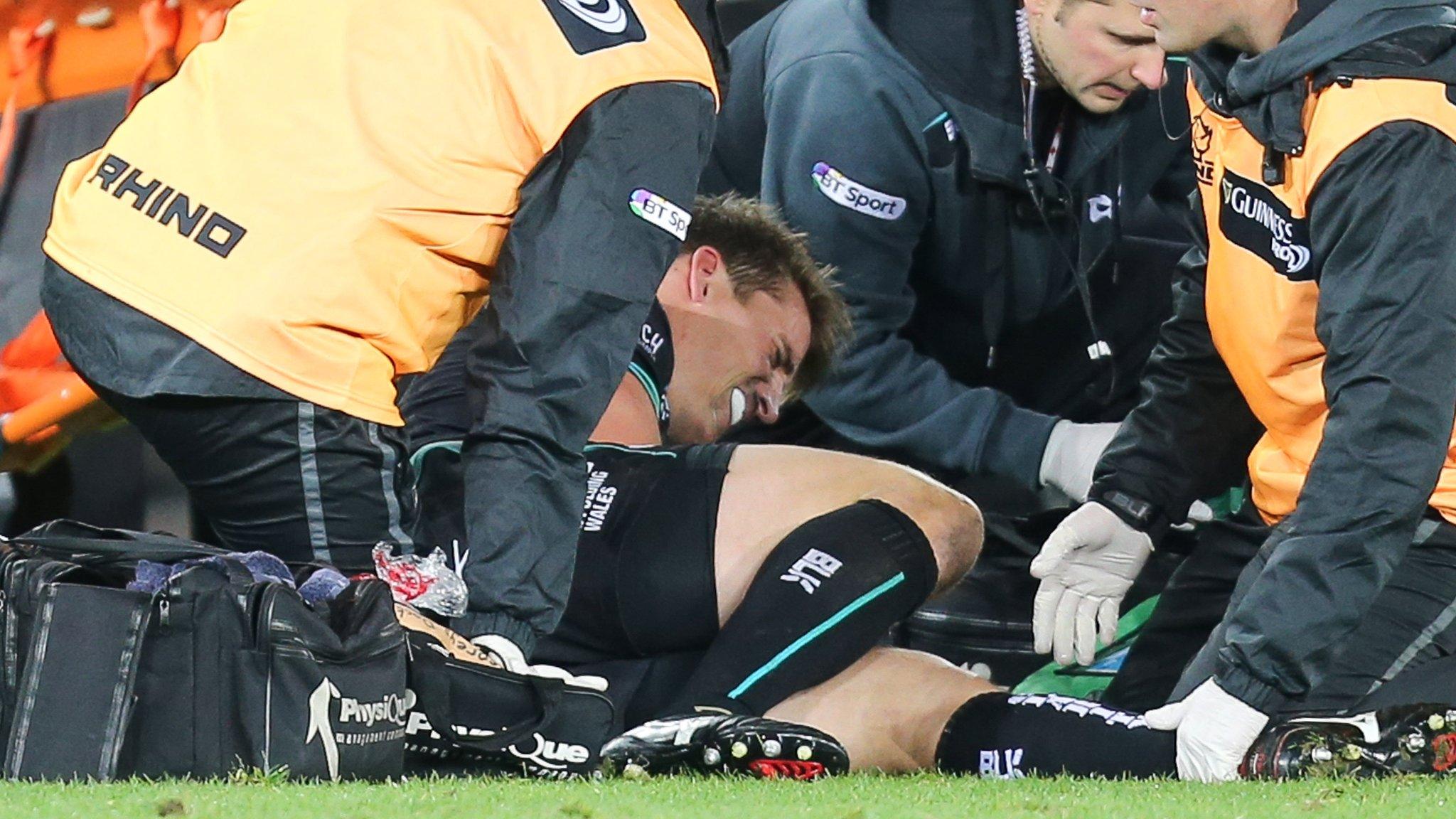
- Attribution
- Published11 January 2012
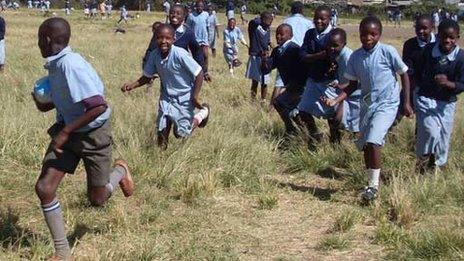
- Published25 August 2011
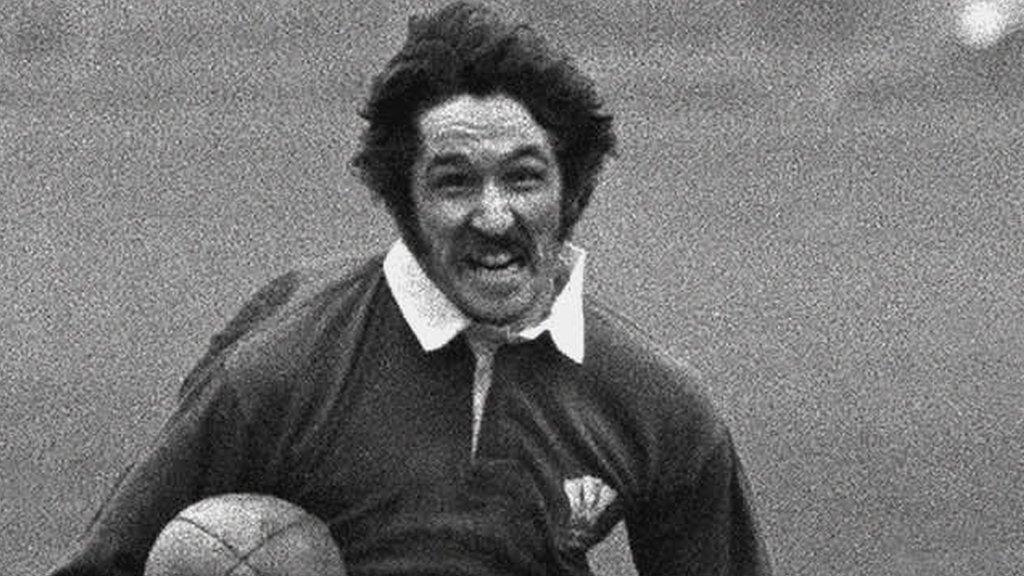
- Published25 March 2018